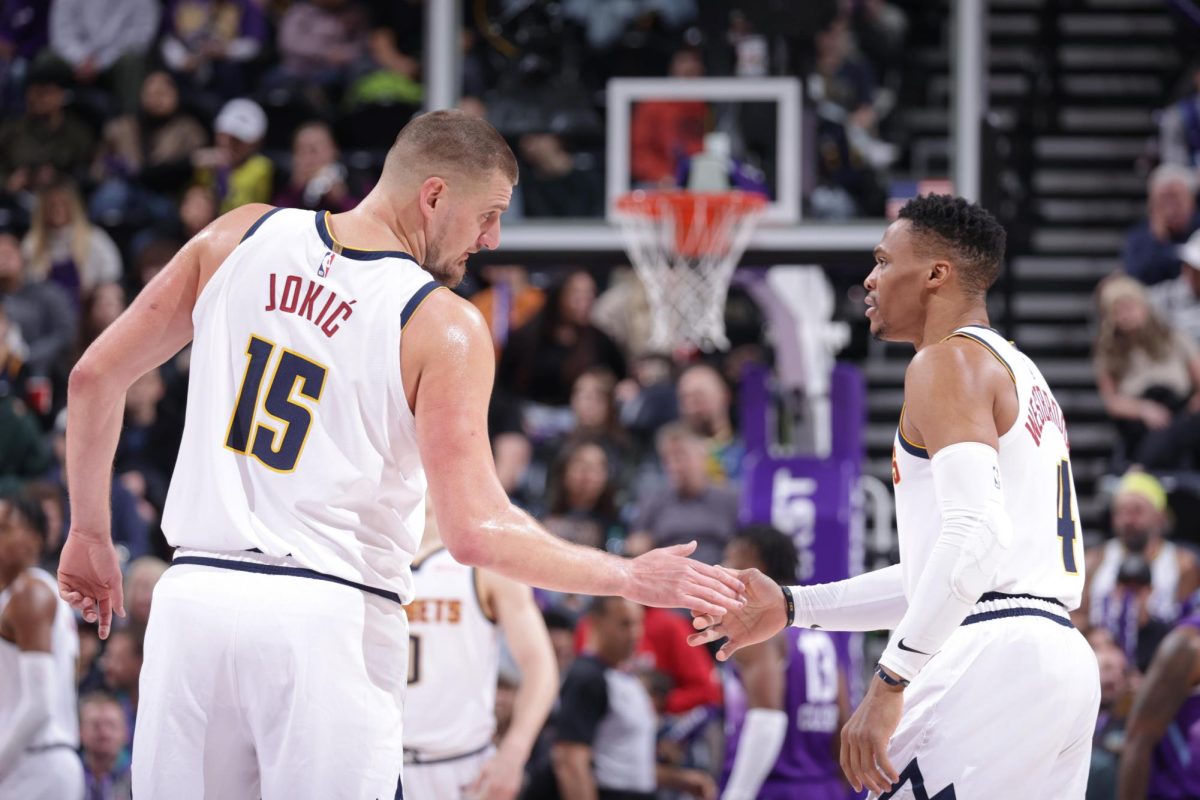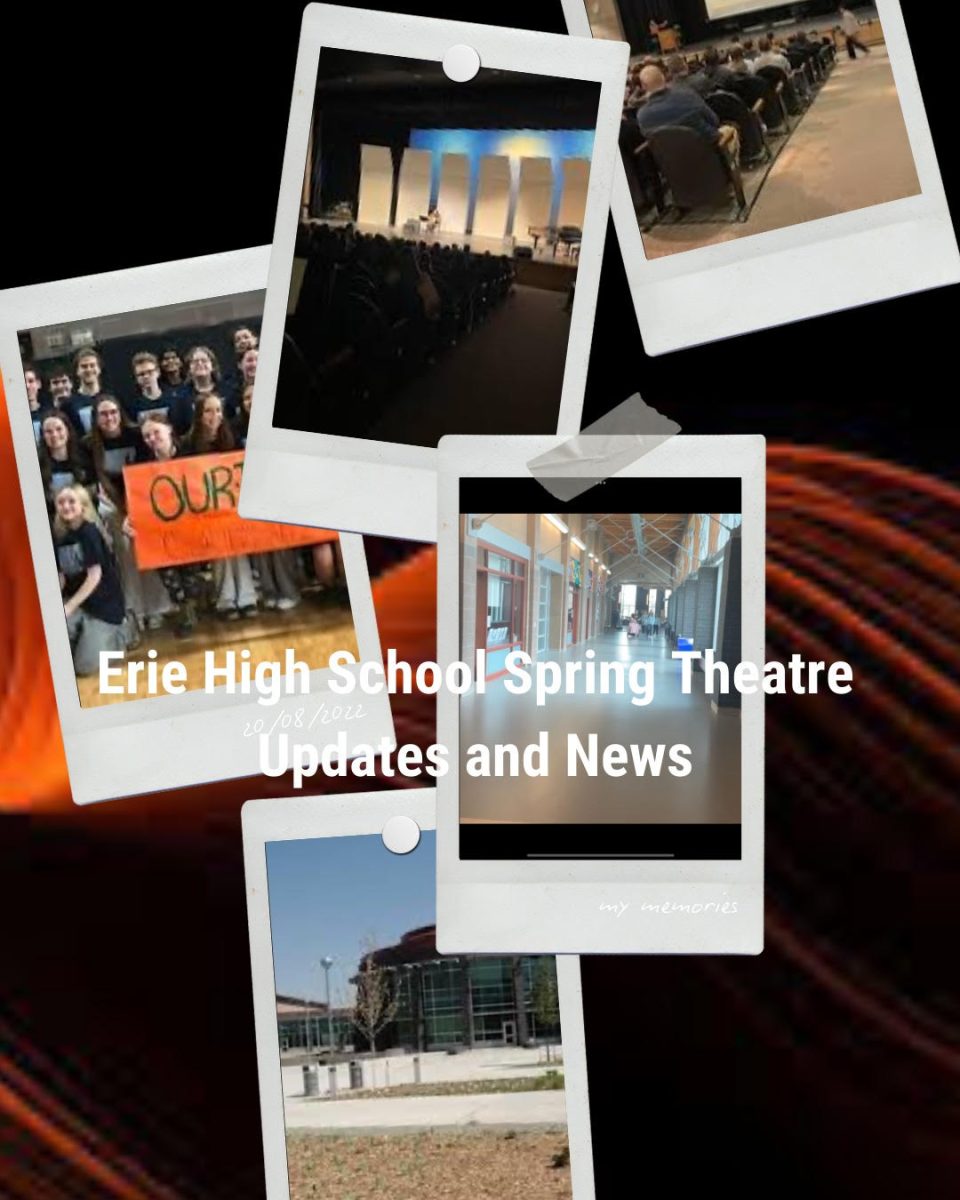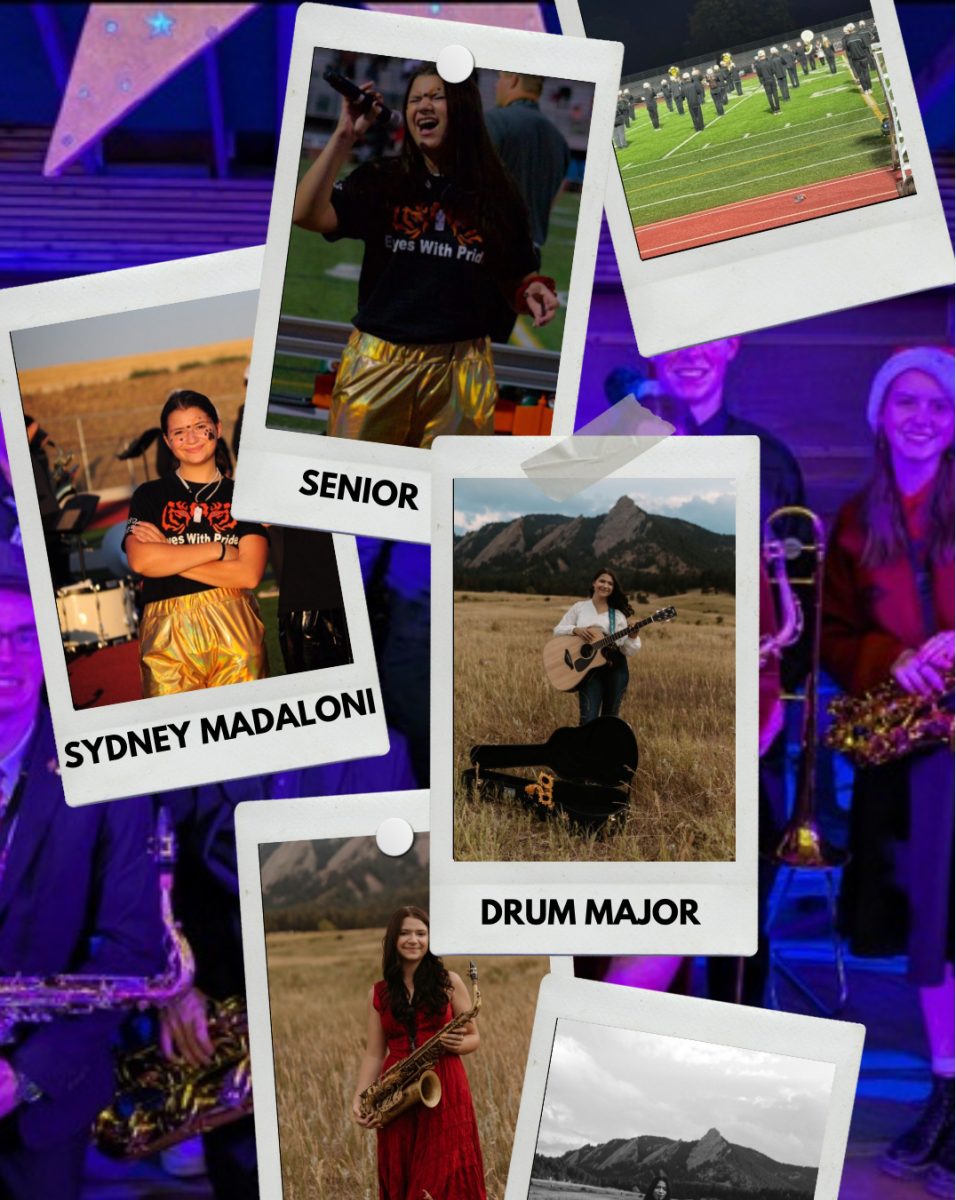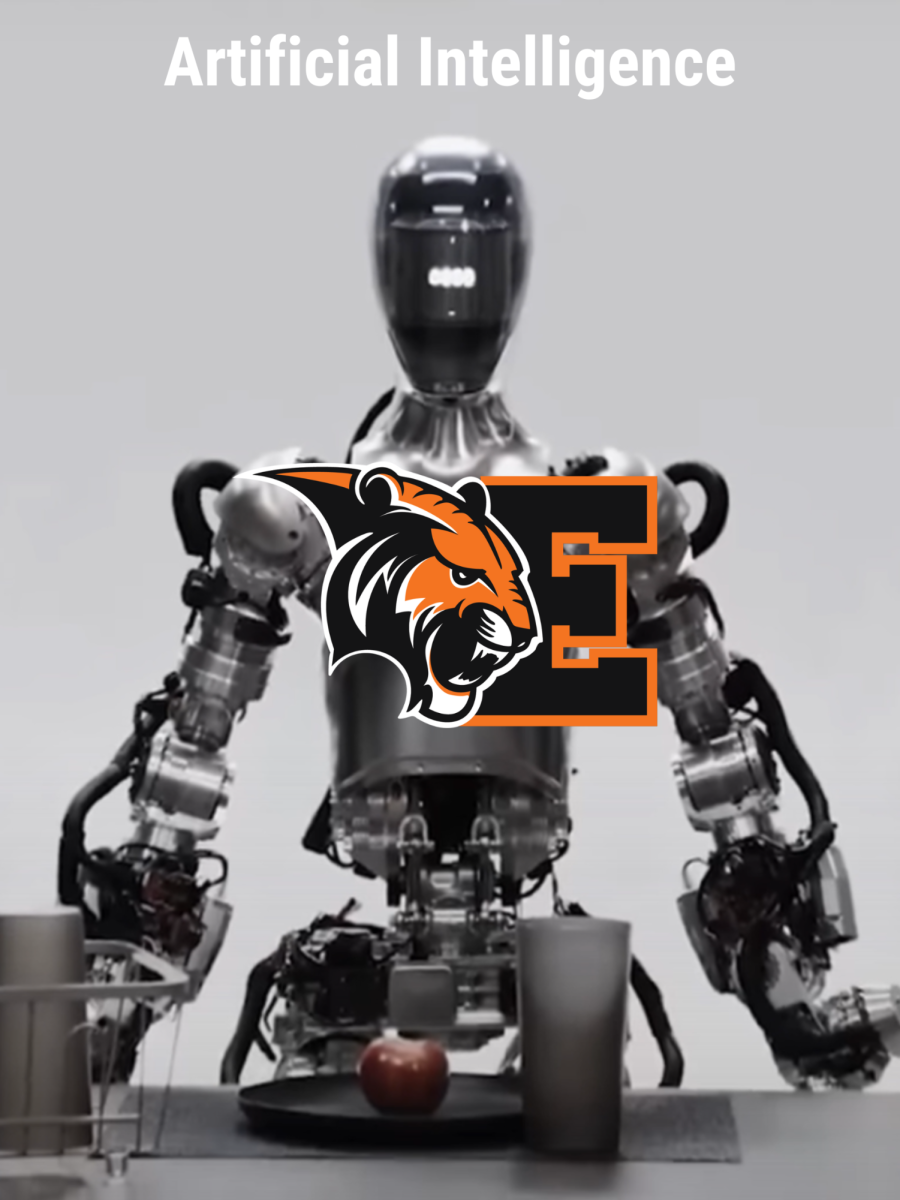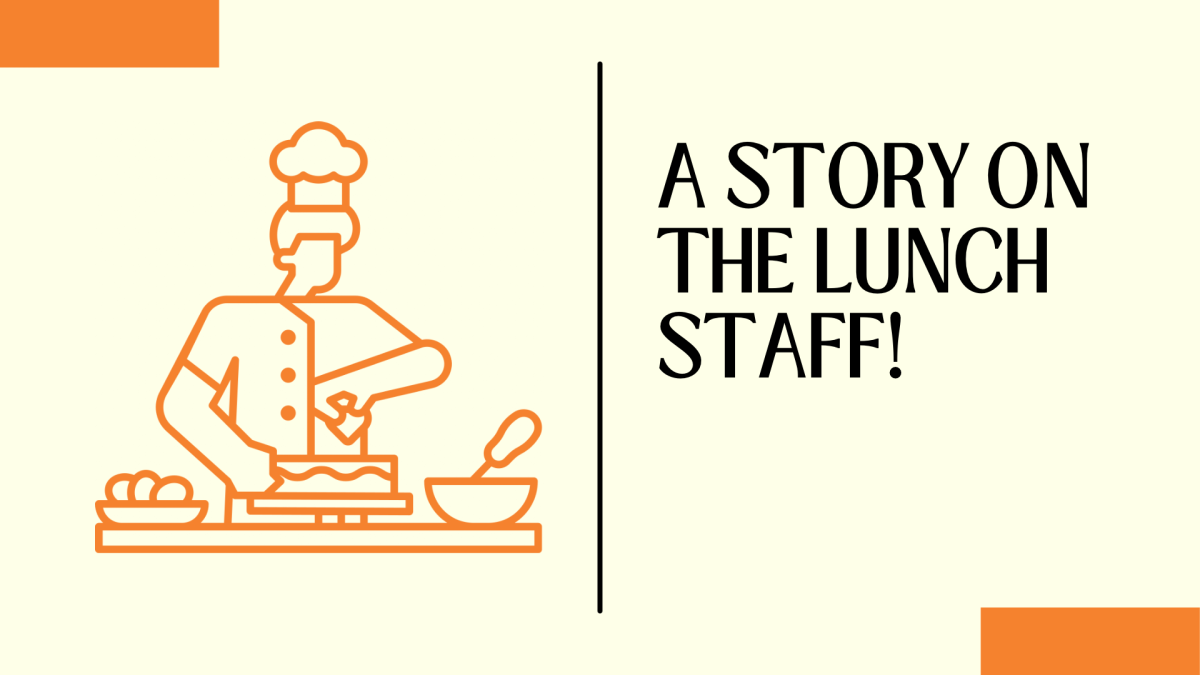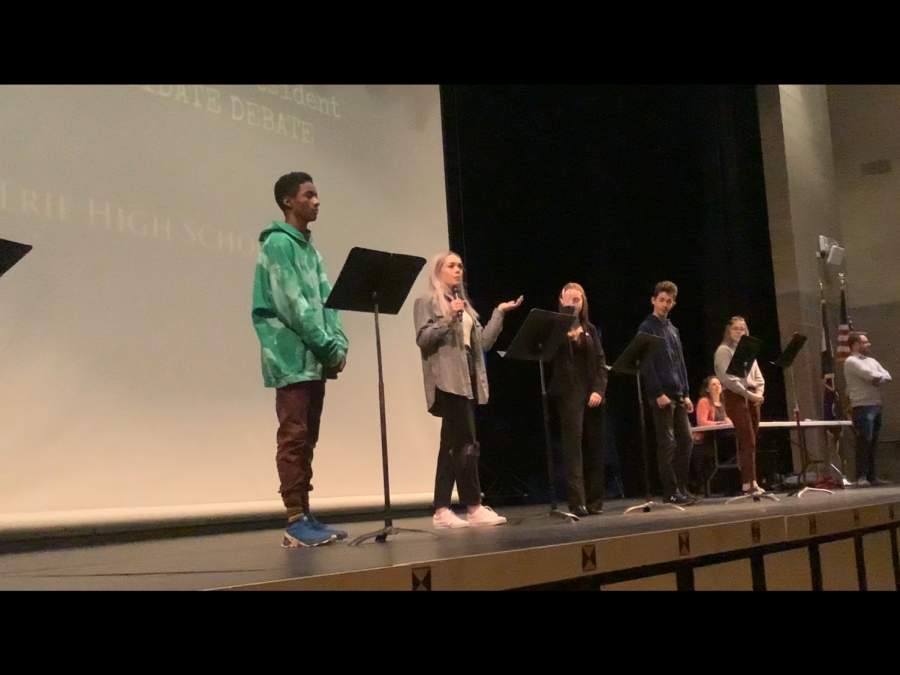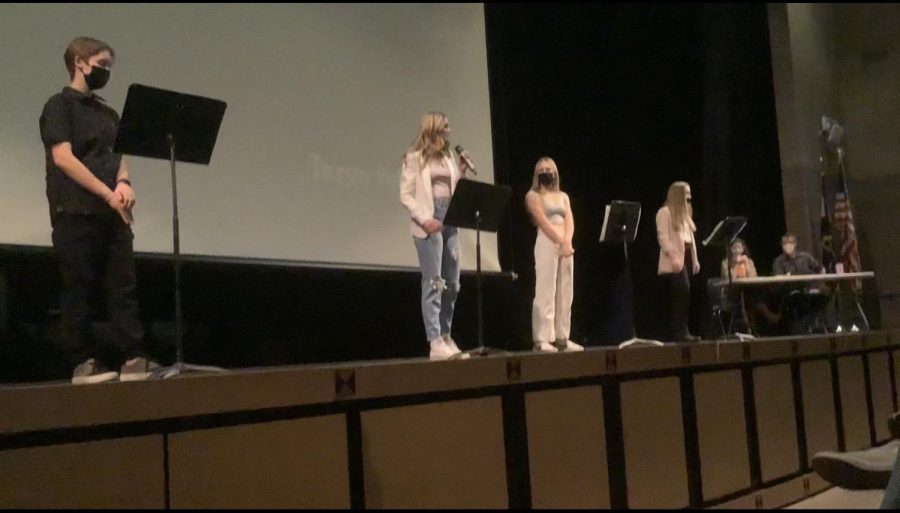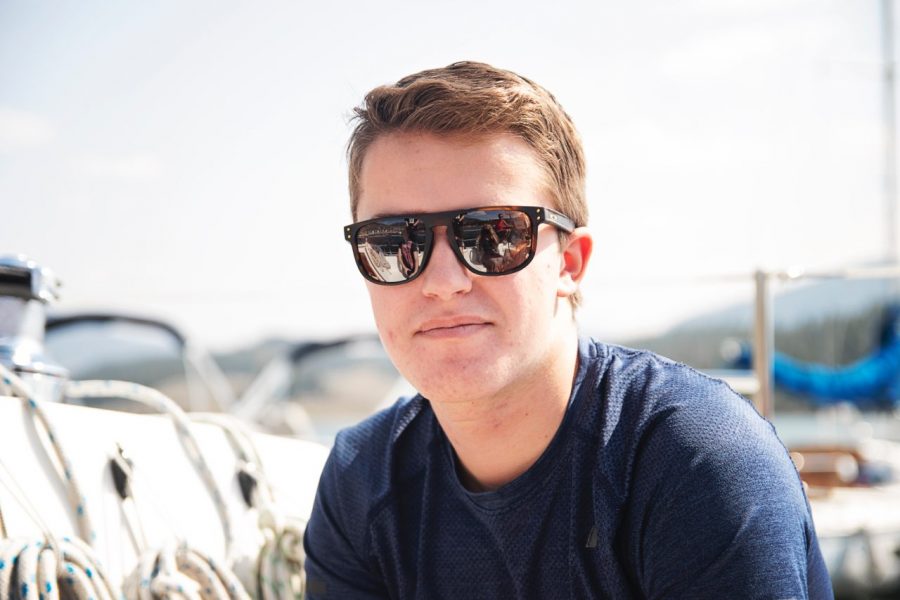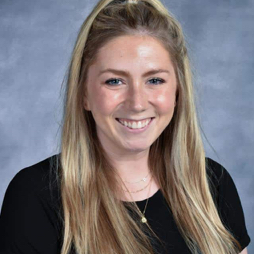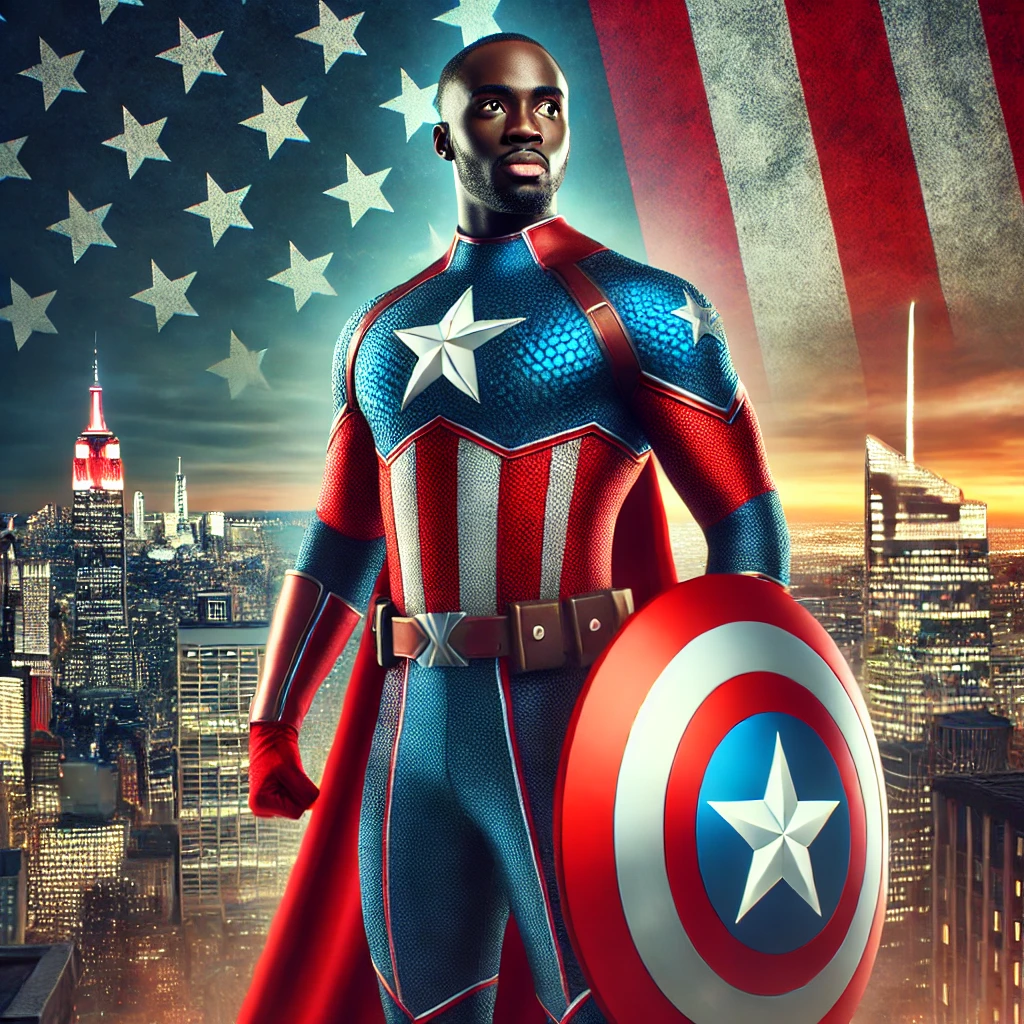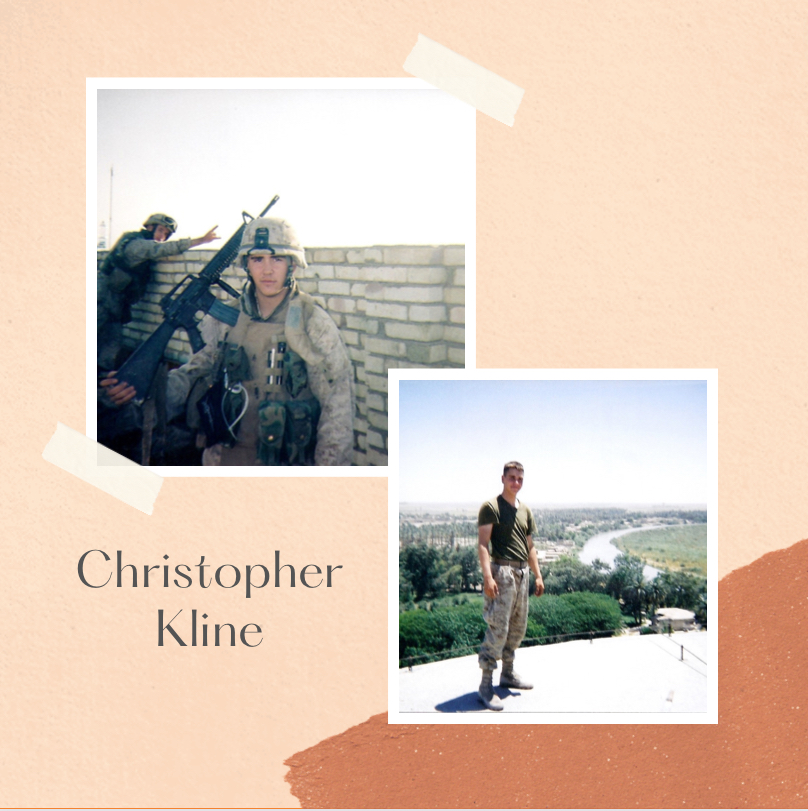Christopher Kline a Teacher to Remember
May 24, 2023
Christopher Kline is a teacher at Erie, and being cherished by teachers and students, he has so much to offer when it comes to the community.
Kline teaches in the history department, where he teaches everything from AP and regular history, world studies, and US government. Kline expresses that though he enjoys teaching all of his classes, his AP US History class is his favorite subject to teach.
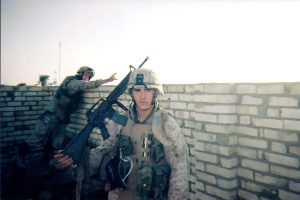
Before teaching at Erie, he taught at a small charter school in New Hampshire, and he also taught at a very small school in eastern Colorado. Besides being a teacher, Kline also has a past in the military. “I was in the military for four years, from 2002 until 2006, serving as a Marine right after high school”. He had three separate deployments to Iraq in his time serving.
As a marine, Kline was an infantryman, but more specifically he was a mortarman and a forward observer. As a mortarman, he explains, “I was one of the guys that had one of the mini cannons, and we would shoot those in battle”. He says, “Being a forward observer I would go out and look for bad guys, and then tell the mortars where to shoot their rounds”.
Kline didn’t always have the plan of going into the military after high school, he says it was more of a last resort type of situation. Not having the best grades, college wasn’t really an option for him. “I kind of felt like a failure in a lot of ways, and I wanted to prove that maybe I could contribute to something, so I decided to join the toughest branch out there, and soon enough I was a marine.”
Living through an experience such as serving in the military taught Kline many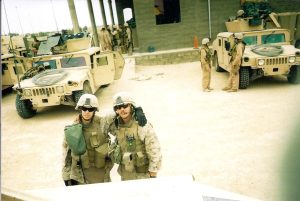 valuable lessons. Being overseas, he didn’t have much down time, but when there was time off he says that some of his favorite memories were just talking and bonding with other soldiers. “My favorite overall memory was making lifelong friendships with the guys that I served with.” He goes on, “We would just get into deep and long conversations about who we were as people, we would laugh a lot, cry a lot, and just really get to know each other quite a bit.”
valuable lessons. Being overseas, he didn’t have much down time, but when there was time off he says that some of his favorite memories were just talking and bonding with other soldiers. “My favorite overall memory was making lifelong friendships with the guys that I served with.” He goes on, “We would just get into deep and long conversations about who we were as people, we would laugh a lot, cry a lot, and just really get to know each other quite a bit.”
Kline knew he wouldn’t serve in the military his whole life, and having opportunities to go to school after he served, Kline had to decide what path he wanted to continue his life with. “While I was serving in the military, I thought I could be a person that changed peoples lives. I could be a person that made a difference in someone else’s life in a positive way. And so when I got out of the military, that’s why I looked into teaching.”
Though being a teacher and being a marine are two very different professions, Kline explains that the transition wasn’t as hard as one would expect. “They are both two very high stress environments, so that didn’t change much, but I think the more difficult transition for me was working in a sector with adults, or at least we were pretending to be adults in the marines, to working with kids.”
He explains that the easiest way to shift your focus from adults to kids is the approach to how you talk to one another. “You have to change how you instruct things and your approach to how you communicate with people. That was a more difficult transition, but nevertheless, I was able to do it.”
Having experience in the military brought Kline experiences that other teachers may not have. He says that he was taught many valuable lessons while serving, and he is able to adopt many of those lessons into his teaching. “You have to be very patient in the military, and you also have to be patient while working with students.”
Another lesson that is easily adaptable to his teaching is the ability to overcome all sorts of obstacles. “In a regular teaching day, we are thrown so many routine obstacles with kids. Learning patients and being taught how to adapt to a situation and overcome its difficulty was probably the best lesson I learned from the marines that I brought into teaching.”
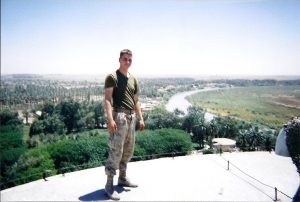
Teachers are influential adults that all students get to interact with and learn from. Kline uses this position to shape the minds of students and ensure they will succeed when they are placed into the real world. “I try and teach [the students] about how they fit into the larger scope of society. Making them aware and encouraging them to be adults to then take on the responsibility of moving onto the next chapter of their life and being equipped for it” is one of the most important things he can teach.
Every teacher has what they call their favorite part of teaching, and Kline is no different from the rest. “It’s going to sound cliche, but anytime we’re in class and you did well with a lesson and you see that one look on the kids faces, the look where you can tell they got it, they finally understood it. It’s a triumphant feeling that is hard to beat.”
He also expresses that the next closest feeling to that would be watching students graduate. “Spending that amount of time with students and getting to know them, and seeing them transition into the next phase of life is huge.”
Many teachers who work alongside Kline have a great appreciation towards what Kline contributes to the school. Gabriel Fishman is a second year history teacher at Erie, and it is obvious Kline and Fishman have an unbreakable bond that can’t compare to other teachers’ friendships. This past year, they have become especially close since they teach a class together. During the A4 block of the school day, you can find Kline and Fishman teaching a class together in the lyceum, or commonly known as the ‘Tiger Den.’ With over 50 kids in the classroom, the two teachers work together to create a classroom experience that resembles more of a collegiate level course. Both of them lecture in their own ways, but with Kline’s experience and Fishman’s passion towards the subject, they teach AP US History like it’s never been taught before.
Fishman explains that last year was his first year teaching, and Kline was always there to help when needed. “He took me under his wing and helped me get the ropes of the profession, which is very valuable as a first year teacher”.
Not only did Kline help Fishman become who he is as a teacher, but Fishman explains that when they first met they had an instant bond. “We just connected. We have a lot of similar interests, and a lot of life overlaps that we can share memories over. [Kline] has spent a lot of time in New England, and that’s where I’m originally from, so that was something we immediately became close over.” They both share the same passion towards history, and Fishman has no doubt that their shared interests really forged their friendship together.
You also cannot skip past their shared love for laughter. Fishman says, “I love his sense of humor. We both find that cracking jokes is the type of reprise we need in this profession to ensure that we are always having a good time with what we are doing”. If either of them are not feeling a hundred percent, they can always count on each other to bring up their spirits. Both of them appreciate being able to rely on each other with any professional or personal needs.
Kline wasn’t always planning on being a teacher, but many people are very glad he joined the profession. “If you would have asked me before the marines if I wanted to be a teacher, I would have told you that was the worst possible career choice for me,” Kline states.
In his opinion, Kline didn’t have good teachers while he was in high school, but there were a handful of them that he explains had a big impact on who he was as a person, and that influence inspires Kline to be the best teacher he can be. “It took a lot of growing up in the military to realize I wanted to do something different. That made me want to be a teacher. I want to show kids that it’s okay to make mistakes, but you have to learn to grow”.
The impact Kline has on the students he teaches is truly incredible, and the students and staff at Erie express how lucky they are to have a teacher who cares so much about the success of his students as much as Kline does. Kline explains that he will continue to grow as a person, and continue to influence students for many years to come. From the words of Gabriel Fishman, “We love you Dr. Kline.”







